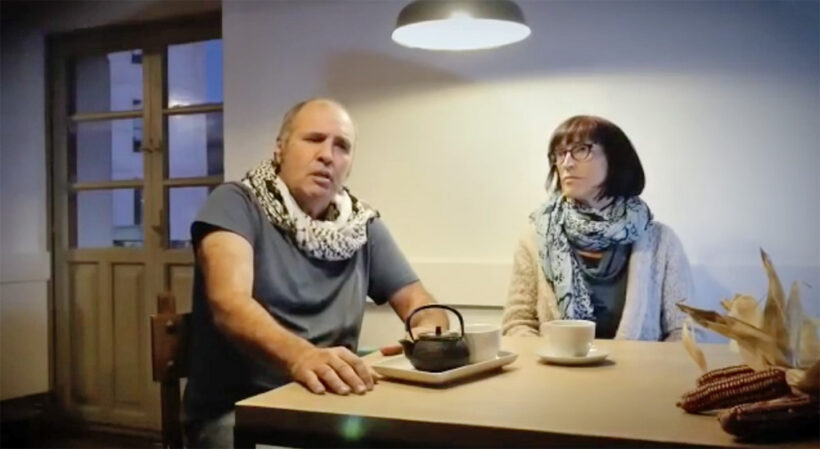If it comes to choosing between legality and human rights, the Artea Network, dedicated to the reception of migrants and refugees, has no doubts.
In the early morning of December 27, 2016, two Basque activists were arrested in the port of Igoumenitsa, in northern Greece. Mikel Zuluaga and Begoña Huarte were about to board a ferry to cross to Italy when police found eight refugees hiding in their motorhome.
They knew the risk of the action and left a video where they explained the reasons that led them to “illegally transfer refugees” to fight against a “barbarism comparable to other great exterminations in history”. As long as EU laws are not in line with human rights, they said, “the right to disobey” rules.
Six years after, Mikel Zuluaga does not feel much like talking about this action. And it is not because he regrets it or does not want problems, but because it was nothing more than one more act of disobedience of the many that the Artea Sarea network, a collective in which he participates, carries out to carry out its particular reception project in this town of Bizkaia, 28 km from Bilbao.
Unlike most of the organizations that work with refugees, it is not what is legal that rules, but “what is legitimate”, Zuluaga told El Salto.
This is where the eight refugees intercepted by the Greek police were headed and where some 130 people live today, including activists and migrants, in various buildings that have been refurbished. The Artea Network has little to do with other reception centers. Unlike most organizations that work with refugees, it is not the legal that rules, but “the legitimate,” Zuluaga told El Salto.
Among the activities of the Artea Network is what they derisively call the Travel Agency, in which activists with their own resources and without profit motives help “survivors” cross borders. A tradition, says Zuluaga, that goes back to the mugalari and the post-war and Francoist times. And the Travel Agency not only operates on the border with France, but also reaches other European countries, as was the case in Greece.
Once on Spanish territory, the problems of migrants and refugees are far from being solved. “In the Artea Network we go from legal to illegal with total normality,” he admits. Fictitious contracts or registrations, decent jobs for people without papers, marriages of convenience or the occupation of void houses by banks or vulture funds to house homeless migrants are practices promoted by the Network to guarantee people’s human rights.
However, the work of this collective is “symbolic”, acknowledges Zuluaga. They can barely attend to a miniscule part of the millions of people who want to cross borders. That’s why, he says, as important as disobeying is communicating disobedience, making it public, saying it up front. “We could do it in a disguised way, but disobedience has precisely its potential when you make it public. When we say we are doing it.”
“We could do it in a disguised way, but disobedience has just its potential when you make it public. When we say we’re doing it.”
The normalization of migrant hate speech and racism makes the work of the Artea Network even more difficult and necessary. “The monster grows thanks to our dehumanization,” Zuluaga points out. And active disobedience, “from doing things,” is a way to dismantle the monster. “There is no transformation without risk or confrontation,” he sums up. We must move towards utopia, defends Zuluaga, a “necessarily imperfect” utopia, towards the community, towards the “liberated spaces” of the logics of capitalism and individualism.
They have received numerous fines and have gone through trials and arrests, but from the Artea Network they cannot conceive of any other way of confronting what is perhaps the greatest injustice of our time: “As long as we cannot tackle the causes of North-South inequalities, we have to prepare ourselves as a people for long-term solidarity. We need to open our doors,” she says.






